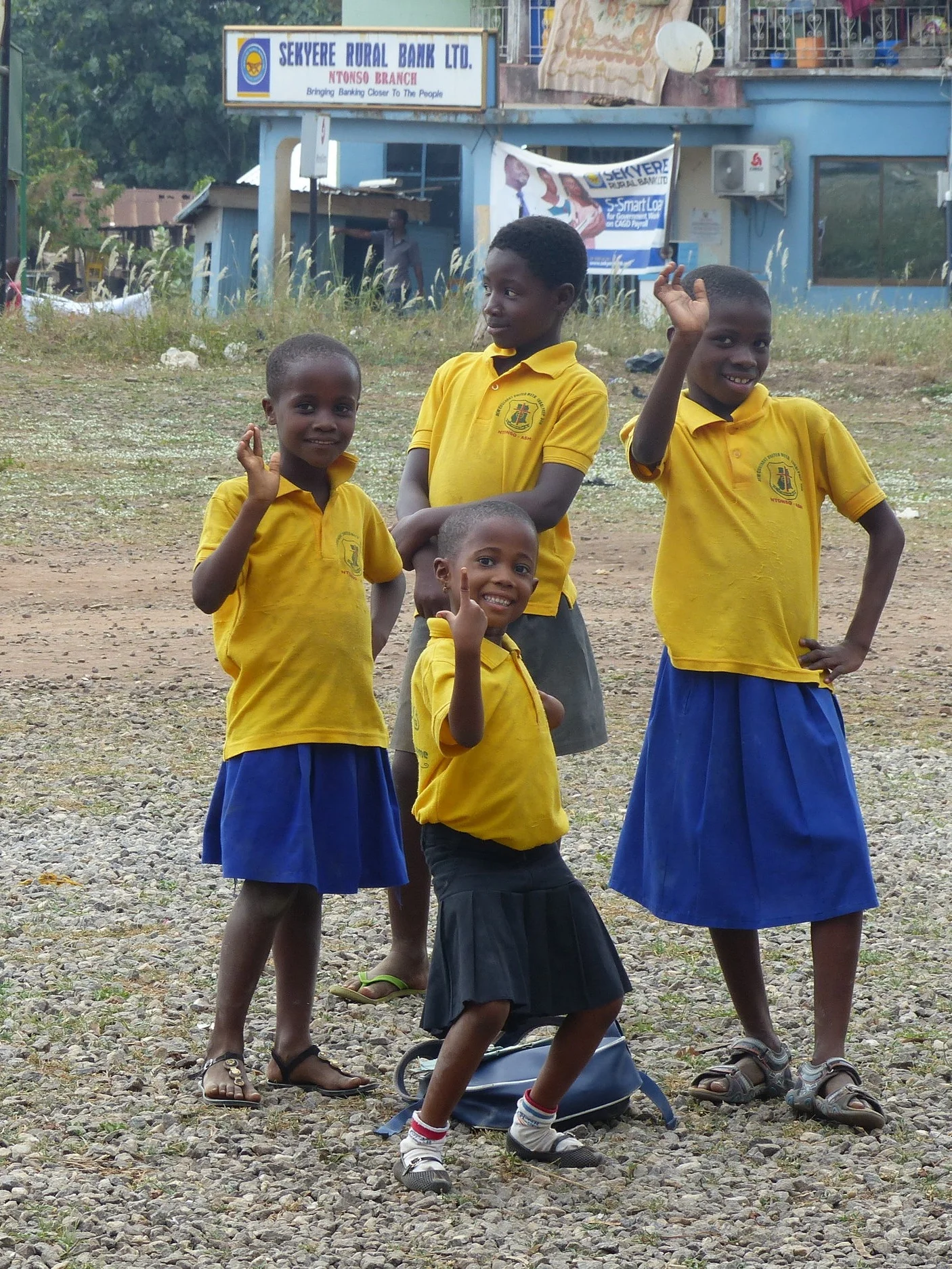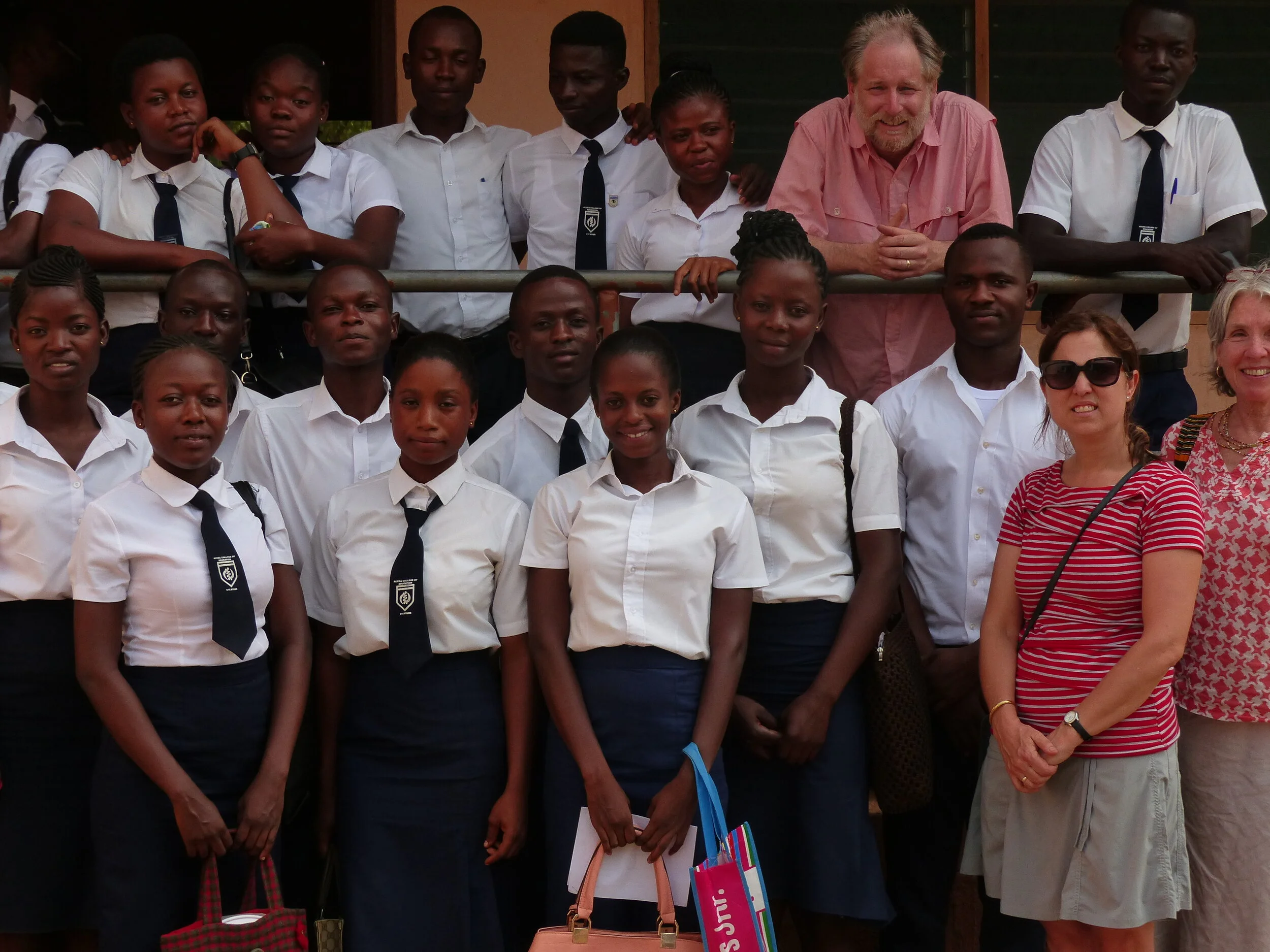
Proverbs, Music and the Royal Palace with Agya Koo Nimo
Agya Koo Nimo is one of the last true veterans of highlife and palm-wine music, which dominated Ghana's popular music scene throughout much of the twentieth century. Using stories and singing, the veteran tells stories of the royal Ashanti court and the history of the Ashanti people. He was the first Ghanaian to release a CD, Osabarima. He has received the Grand Medal for Lifetime Service to Ghana, and huge acclaim worldwide, playing in Europe, Africa, and America.

Ananse Kwae: The Baobab Tree Of Truth: Traditional Spirituality In Ghanaian Culture with Professor Kofi Asare Opoku
To understand Ghanaian spirituality, one must bear two African proverbs in mind: “Truth is like a baobab tree, one person’s arms cannot embrace it;” and, “The wise person does not say that he/she has the final word, but the fool insists.” African spirituality is a holistic spirituality that gives meaning and significance to all aspects of life. Visit Ananse Kwae, a sanctuary of medicinal plants, and learn about the wisdom our ancestors gained from being part of nature.

Customary and Common Laws in Ghana
As an emerging democracy, Ghana’s identity is still tied to its colonial past. This workshop examines the complexities of the intersection of customary laws and the inherited constitutional laws that form the basis of Ghana’s Justice system.
Joan Mensah Hagan. associate at Kuukua Legal Consulting firm. She is passionate about family law and considers herself a lifelong learner.

The Door of No Return: Slavery and its effects on the world with Tete Cobblah
Ghana’s coast is littered with the ancient songs of broken ghosts, broken communities and the husks of the European forts and castles which hold these reminders of human bondage and trade. Why did this happen to change the course of history in such a dramatic way? How do we teach about slavery in general and what should we learn from this haunting past to inform the present? Participants will be encouraged to engage in a discussion about questions that have risen from the topic of slavery, reparations and modern day slavery. Participants will be encouraged to share responsive essays, poetry, music or videos.

Cocoa Stories and Why Economics Matter with Michael Owusu-Manu
This workshop involves a trip to the Cocoa Research Institute of Ghana at Tafo in the eastern region of Ghana. Learn about the economic and historical value of cocoa and explore the many ways Ghanaians have developed uses for the country’s raw materials. Participants will also discuss the economic dilemma most developing countries in Africa face as they try to industrialize their countries while the prices of cash crops and raw materials like gold and cocoa are determined by industrialized countries.

African religion and the Rest with Pashington Obeng
This workshop examines how the African experience is expressed through religion and anthropology. It surveys African religions among the Akan of Ghana, Yoruba of Nigeria, and the Zulu of South Africa. The seminar will focus on how gender, age, status, and cultural competences influence Africans use of architecture, ritual, myth, dance, and music to communicate, elaborate on the cosmos, and organize their lives. Special attention will also be paid to how Christianity, Islam and other non-traditional religions create a complex intersection of religiosity and development of culture.

Ghanaian songs, games and movements for learning with Dr. Jennies Deide Darko
Every child learns about their world through play. Children learn about each other, their families and people outside their families. They begin to develop and understand their emotions through games while at play. Negotiating, compromising, trust-building and friendship-making are developed through playful interactions with others. Children develop their creativity and sense of imagination through play and discovery. Indeed, educators and elders in indigenous communities agree that play is slowly disappearing from schools and many communities. Ghanaian children learn better and faster through games like Ampe, Kwaane Kwaane, dances like Agbadza and Kpanlogo, and songs like Tse Tse Kule and Pete Pete. Learn about how playing helps Ghanaian children develop character, social skills and creativity.

From (Dis)ability to Ability: A Personal journey to light with Gertrude Oforiwa Fefoame
This seminar explores the personal story of the presenter, a woman with a disability, and the conditions and societal setbacks she had to surmount to become a change agent and a valued member of the Ghanaian society. Gertrude Oforiwaa Fefoame is Ghana’s candidate for the United Nations Expert Committee on the Rights of Persons with Disabilities (CRPD), and an advocate on disability and gender issues. Her personal story is one that introduces participants to the roles that sexism, discrimination, society and traditions play in determining the outcome of a woman with blindness in a developing country.

Plants that Heal with David Duane
Upon a visit to the Centre of Plant Medical Research in Mampong, participants will observe how scientists and doctors collaborate with traditional healers to develop herbal medicines for use by patients and industry. Experience the intersection of science and culture, and explore ways that traditional practices inform medicine and science in Ghana and other African countries. A trip to Kakum National Park also features the canopy walk which allows participants to walk 30 meters over the habitats of endangered mammals, butterflies and birds and to experience the African rainforest in a unique way. A discussion about the role of teachers in educating students about sustainability and related curriculum will be part of these workshops and trips.

Adinkra and Art that tell our stories with Elizabeth Updike Cobblah
This workshop involves some writing and visits to Ghanaian artists and craftsmen. Through hands-on learning, experience how artists and craft people express culture, religion language through their art. Many African cultures demonstrate the importance of ancestors in their roles as guardians, protectors and more importantly, intermediaries, between the living and God. Most traditional Ghanaian art is functional with proverbs, symbols and messages at their core. These include the adinkra cloth, pottery, and even coffins. There are also opportunities to meet contemporary Ghanaian artists and discuss how their view of Ghanaian culture and an ever-changing world has influenced their art.

Visit a Ghanaian School with Elizabeth Aikins
Participants will visit Ghanaian schools and interact with fellow educators through classroom observation and exchanging ideas about best practices and issues. Through engagement with Ghanaian colleagues and students, there are opportunities for telling the stories that transcend culture and result in deeper learning.










